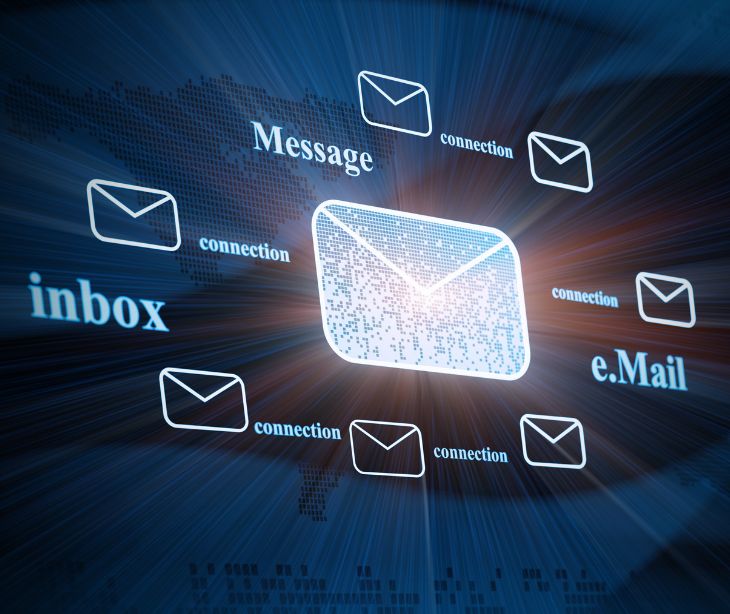
Healthcare organizations must comply with HIPAA requirements to protect patient privacy and safeguard their health information. HIPAA compliance is especially important when communicating with patients and other providers over email. Training healthcare staff on HIPAA email regulations improves adherence to the act’s privacy and security requirements.
Healthcare organizations can follow the steps in this guide to effectively train healthcare staff on HIPAA email requirements.
Learn about: HIPAA compliant email: The definitive guide
HIPAA compliant email in healthcare
A long-term study on email usage worldwide has the number of email users by the end of 2023 set to hit 4.37 billion. Moreover, we know that email communication and digital tools have transformed healthcare and how patients think about the industry and their health. Having direct contact with doctors through email has improved patient engagement and ultimately patient care.
How each healthcare organization secures its email communication depends on the needs of that organization. Whether stored on a computer or in an inbox, transmitted electronically, or in someone else’s inbox, PHI must be guarded from unnecessary use or disclosure. Generally, healthcare organizations must:
- A compliant email vendor (like Paubox) that is secure itself and will sign a business associate agreement (BAA)
- Create email policies that address sending, receiving, and storing PHI, as well as general use and disclosure
- Establish strong password policies and access controls
- Protect data connected to email by using encryption at rest and in transit
- Also include robust inbound email security tools
- Monitor staff email usage and audit email logs
- Conduct regular risk assessments and update policies and procedures when needed
Finally, healthcare organizations must also train healthcare staff on HIPAA email requirements.
What happens if healthcare staff is not properly trained?
An unsecured email puts patients and their information at risk. For an organization, a breached email could lead to costly penalties, shutdown services, and damage to a healthcare provider’s reputation. Of the 901 breaches currently under investigation on the U.S. Department of Health and Human Services (HHS) Breach Portal, 167 (18%) list the location of the breach as email.
Failure to train staff on HIPAA compliant email poses tangible risks to healthcare organizations, their employees, and their patients. Real risks include:
- The heightened possibility of PHI being sent to the wrong person and/or part of a larger unsecured breach
- Misunderstandings about patient access and sharing permissions among staff
- Extra time spent fixing organizational inefficiencies, correcting mistakes, or reporting breached emails
- An increase in staff stress and a decrease in job satisfaction
See also: The role of employee education in email security for healthcare organizations
Steps to train staff on HIPAA compliant email
Providing training and support to healthcare staff enhances email proficiency and HIPAA familiarity. Equipping employees with the skills for compliant email communication minimizes breaches, misunderstandings, and potential errors. By following the steps below, healthcare organizations can demonstrate that they did all they possibly could to diminish the opportunity for human error.
Identify staff to train
Start by identifying staff who require HIPAA training on using email and handling or accessing PHI. Examples of employees to consider include doctors, nurses, administrative staff, IT personnel, receptionists, and records management staff. The material should be customized to specific roles and responsibilities while an organization should consider that employees will need email safety training.
Set up the training program
Next, decide if the training will be done within or by a third party known for conducting HIPAA email training. Then, determine the content to cover: HIPAA email compliance, patients’ rights to PHI, the minimum necessary standard, in-house email policies and procedures, email breach problems, and employee email responsibilities. Define the objectives and desired outcomes of the training program.
Look at how to present the material, such as practical examples and case studies, to illustrate how HIPAA compliance applies to staff. Include such training methods as presentations, handouts, interactive modules, videos, and/or workshops. Try to incorporate interactive elements like quizzes, discussions, or real-life scenarios to enhance engagement and knowledge retention.
Conduct the training
Establish a training schedule that accommodates staff availability and allows everyone to participate. Keep staff engaged and adapt as needed. Staff should leave the training sessions understanding:
- How to identify and handle PHI
- PHI use and disclosure restrictions
- Proper email encryption practices
- Recognizing an email scam (e.g., phishing)
- Internal email policies and procedures
- Proper password management and access controls
- Handling patient authorizations and patient requests
Go beyond HIPAA email requirements and include general information about HIPAA. Make sure that employees go away with knowledge about HIPAA and its importance to proper patient care.
Assess and evaluate the training
After training, conduct regular assessments to gauge staff comprehension and identify areas for improvement. Seek feedback from staff on the training content, delivery, and relevance to their roles. Monitor staff adherence to email policies through regular audits, spot checks, or incident reporting to ensure the program’s effectiveness.
Maintain HIPAA email compliance through continuous training
HIPAA email training should be performed as often as possible based on the assessment. Consider how long the training might be good for and when a refresher might be needed. It may also be helpful to encourage staff to stay updated on HIPAA independently through self-education, newsletters, or online resources.
FAQs
Is email communication in healthcare secure?
Email communication in healthcare can be secure if proper encryption and security measures are implemented. Healthcare organizations must use secure email platforms, encrypt emails containing PHI, and ensure compliance with HIPAA regulations to safeguard patient privacy.
Can I send unencrypted emails containing PHI?
While the HIPAA Security Rule does not expressly prohibit the use of email for sending ePHI, covered entities must implement policies and procedures to protect the security and privacy of ePHI. Secure email methods, such as encryption or secure patient portals, ensure HIPAA compliance.
How can email communication streamline administrative processes in healthcare?
Email communication streamlines administrative processes in healthcare by facilitating communication among healthcare professionals, staff, and stakeholders. It allows for disseminating appointment reminders, billing inquiries, administrative announcements, and policy updates, reducing paperwork and enhancing operational efficiency.
Can email be used for sharing medical records and imaging studies securely?
Yes, email can be used for sharing medical records and imaging studies securely if proper encryption measures are in place. Healthcare organizations should encrypt emails containing PHI and implement secure methods for transmitting and accessing medical records and imaging studies to ensure patient privacy and compliance with HIPAA regulations.
Subscribe to Paubox Weekly
Every Friday we'll bring you the most important news from Paubox. Our aim is to make you smarter, faster.



